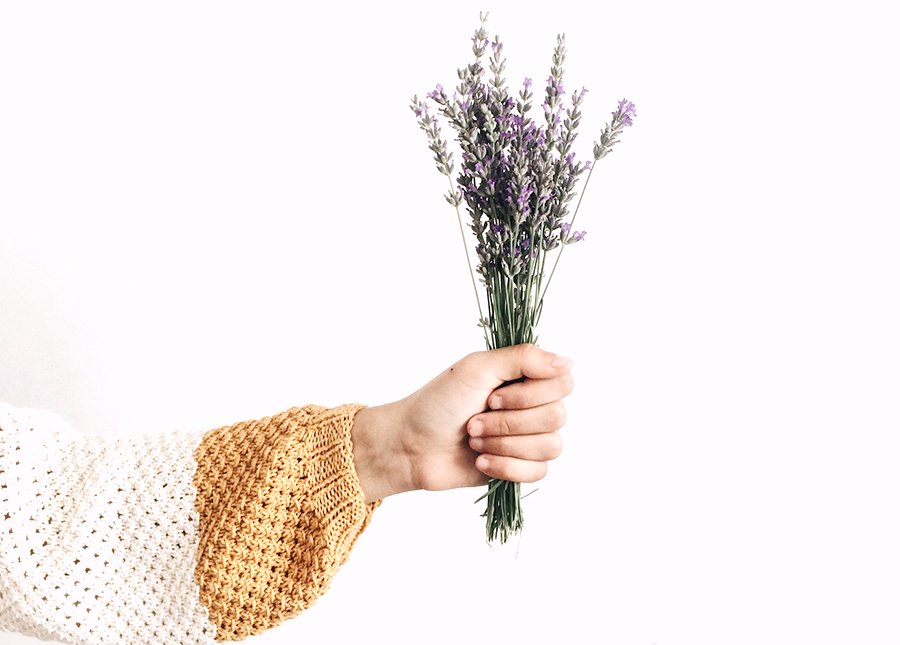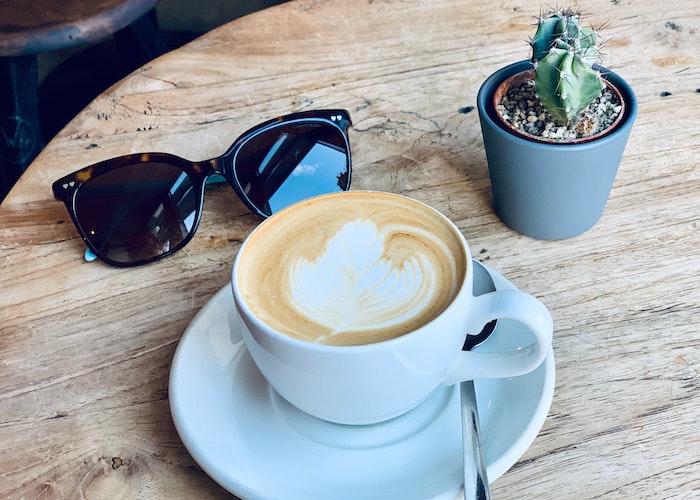3 Steps I Used To Rid My Life Of Excess — & Keep It That Way

We’ve all been there: a closet filled with clothes you never wear, a pantry filled with cans that will never be opened, shelves full of books we will never read. The problem gets worse and worse every day. Sometimes it feels like someone needs to call Hoarders, like, yesterday.
I was exactly like that. I was in the worst way — Johnny Cash without his guitar and four 30 packs of blue pens. I thought, Time to call 1-800-GOTJUNK. But, did I need to go to those extremes? Or could I just take some time to handle the situation myself? I know that for me, between side-hustles, and jobs, and school, there isn’t much time for myself. But I was still able to apply a few basic tips for decluttering, which can easily fit into anyone’s routine.
1. Make a list, & recognize which things are “liabilities.”
This first tip may seem intuitive, but it’s surprising how few people actually do it! I made a list of books, clothes, food, makeup, accessories — all the items I had already, many in excess. I like to first split each list up by category, and then by specific items. For example, I divided my “Books” list into subcategories — books I’ve read, books I want to read, and books I need to read. The list of all these liabilities was staggering at first. I call them “liabilities” because they didn’t add to my bank account, or even add any real value to my life. They only cost me money. From my book collection, I found that I did not even remotely recognize a quarter of them. Some of them were even duplicate copies of books I already had.
I then looked into those recurring expenses, like clothes and food. For a little background, I come from a large family, and when I moved out, my mom was the only example of shopping I had. Like my mom, I started to shop for a family of five instead of just the single, broke college student I was. The consequences: spoiled food, overstuffed closets, and a zero-balance bank account. Moths were flying out of my wallet. But what was I to do? I had a list, but where was I to go from there?
2. Actually get rid of the excess.
It was tempting to hold onto objects, for a multitude of reasons. I’m not saying get rid of everything and live your life like a cabin-in-the-woods-dwelling, capital-m Minimalist. I personally want more in my life than one spoon, one wooden bowl, and a roof over my head. I say keep mementos, but understand what that means — a piece of costume jewelry or shirt you haven’t worn or used since your high school graduation is not a memento. Toss it out! That’s exactly what I did. That shirt I haven’t worn since middle school? Those books I will never read but made me look smart? Bye! I also found a ton of places to go to get rid of my excess of goods. I went to my local food pantry, thrift stores, donation bins, recycling. That holey dress shirt I hadn’t worn to Church in years got turned into rags.
For my possessions that weren’t ruined, I was figuratively sitting on a pile of money. I decided to access that untapped vault. I sold my used (or not-so-used) books to a secondhand bookstore to be loved by a different owner. With a quick online search, I found hundreds of places to sell clothes, jewelry, furniture, etc. Some of this stuff was treasure — you know, just not to me.
3. Reign in your consumption.
There’s a concept in economics called “Conspicuous Consumption,” a term coined by economist Thorstein Veblen in his 1899 book The Theory of the Leisure Class. (Talk about a concept as old as time.) Essentially, it means a need to buy expensive objects for the purpose of showing off wealth, rather than their actual utility. I remembered hearing of him back in my high school economics class, but I hadn’t done much research until now. Point-blank, we all do it. I once bought myself a pair of Ray Bans — not because I thought I looked good in them, or because I thought they did a better job than other sunglasses, but simply because I noticed they were what celebrities were wearing.
The same goes for food. Think of influencers’ diet tips and tricks: Quinoa, soy, avocados, expensive spices galore. Their purpose of buying them is often not their actual value, whatever that may be, but in being the kind of person that buys those things (i.e. often a wealthy one). I realized I had to start recognizing my real reason for it whenever I wanted to buy something valuable. With my handy-dandy list, I determine whether I already have a substitute for it. If I don’t, and I need to buy something, I can look into more utilitarian alternatives. The internet made this, for me, super easy and fun to do.
*****
These three tips can be applied anywhere you’re overspending or have excess in your life. Follow the mantra; list off, get rid of, buy less. You might find that you are buying more items that bring actual satisfaction and, more importantly a fuller bank account. I know I did.
Kyle is currently a Junior at the University of North Texas studying Theatre Performance and a minor in Economics.
Image via Unsplash




